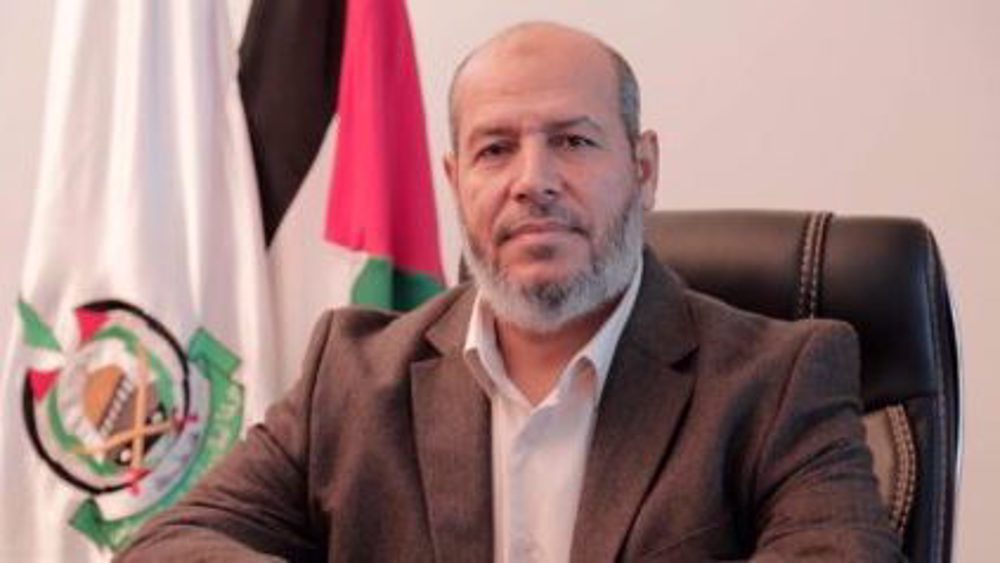US support for aggressors triggers humanitarian catastrophe in Yemen: Iran
Iran's Foreign Ministry spokesman says the United States is behind the ongoing humanitarian catastrophe in Yemen by providing arms and financial support for the aggressor states, which have been wreaking havoc in the war-torn country.
“The United States has caused one of the biggest human catastrophes in Yemen, as admitted by international organizations, through providing financial and political support and giving weapons to the aggressor forces,” Bahram Qassemi said in a statement on Sunday.
Rejecting allegations that Iran has requested to send a delegation to the ongoing Yemen peace talks in Stockholm, Sweden, the Iranian spokesman said, “Since the beginning of the crisis in Yemen, the Islamic Republic has emphasized the need for Yemeni-Yemeni talks away from any foreign intervention and the ongoing talks in Stockholm are of a Yemeni-Yemeni nature.”
A round of talks between delegations from Yemen’s Houthi Ansarullah movement and the country’s former Saudi-backed government opened in the Swedish town of Rimbo on Thursday under the auspices of the UN in an effort to find a political solution to the Yemen conflict and end a devastating Riyadh-led war on the country.
The negotiations mark the first attempt since 2016 to end the Saudi-led war, which has killed tens of thousands of Yemenis since its onset in early 2015.
Elsewhere in his remarks, Iran's Foreign Ministry spokesman noted that Iran has repeatedly expressed its explicit and full support for the United Nations' mission in Yemen to find an appropriate political solution as the only way to solve the crisis in the impoverished country.
“Iran's approach comes at a time that the United States has issued the permit for a devastating and inhumane war against the Yemeni people by adopting a partial, destructive and imbalanced policy,” Qassemi added.
He noted that the Islamic Republic hopes that all parties to the Sweden talks would adopt "independent and peaceful" approaches within the framework of national and Yemeni-Yemeni talks to put an end to any intervention by foreign parties and terminate the suffering of the oppressed Yemeni nation.
On November 30, Iranian Foreign Minister Mohammad Javad Zarif once again stressed the viability of the Islamic Republic's four-point plan as the main option for putting an end to the ongoing Saudi-led crisis in Yemen.
In a post on his official Twitter account, Zarif said, "Today, after untold human suffering & war crimes by the Saudi coalition & its U.S. accomplices, & efforts to whitewash their crimes with absurd allegations against Iran, our four-point plan still remains the only viable option."
Later the same day, Iran's Foreign Ministry said halting arms exports to parties involved in the aggression against Yemen would facilitate the achievement of peace in the war-torn country as belligerent sides were heading for renewed UN-brokered peace talks in Sweden.
In a statement, the ministry offered its support for Yemen peace talks while urging the international community to play a "key and serious" role, including by exerting pressure on the exporters of arms to the aggressors in order to "facilitate the peace process in Yemen.”
UN Secretary-General Antonio Guterres on Thursday called for the immediate removal of Saudi Arabia’s blockade on Yemen.
I welcome the opening of peace talks on the conflict in Yemen in Stockholm. I urge all those present at the talks to do everything in their power to end the war and the suffering. Yemenis can’t wait. https://t.co/IVA91EWmyj
— António Guterres (@antonioguterres) December 6, 2018
“I welcome the opening of peace talks on the conflict in Yemen in Stockholm. I urge all those present at the talks to do everything in their power to end the war and the suffering. Yemenis can’t wait,” he wrote in a tweet.
Saudi Arabia and a number of its regional allies launched a devastating military campaign against Yemen in March 2015, with the aim of bringing the government of former Yemeni president, Abd Rabbuh Mansur Hadi, back to power and crushing the country’s Houthi Ansarullah movement.
According to a new report by the Armed Conflict Location and Event Data Project (ACLED), a nonprofit conflict-research organization, the Saudi-led war has so far claimed the lives of around 56,000 Yemenis.
The Saudi-led war has also taken a heavy toll on the country’s infrastructure, destroying hospitals, schools, and factories. The UN has already said that a record 22.2 million Yemenis are in dire need of food, including 8.4 million threatened by severe hunger. According to the world body, Yemen is suffering from the most severe famine in more than 100 years.
Read more:
- More than 50% of Yemen’s population facing ‘severe acute food insecurity’: Survey
- Saudi warplanes launch 28 airstrikes on Yemen, kill 3 amid Sweden peace talks
- Number of Yemenis in food crisis or emergency could hit 20mn, warns WFP
- UN warns humanitarian crisis to deteriorate next year
- US to keep backing Saudi war on Yemen, Pompeo says amid humanitarian crisis there
Hamas thanks Iran, Resistance Front following achievement of ceasefire in Gaza
'Capitulation': Israeli officials and media concede Gaza defeat as truce unfolds
'Gaza has won': Social media users react to ceasefire with mix of relief, joy
Iran seeks South Korea’s assistance for AI, fiber-optic projects
VIDEO | Iran's 'Eqtedar' (Power) maneuver
Israel hits HTS military target in Syria for 1st time since fall of Assad
VIDEO | Press TV's news headlines
Israel has slaughtered 13,000 students in Gaza, West Bank












 This makes it easy to access the Press TV website
This makes it easy to access the Press TV website